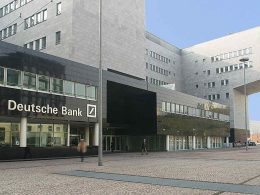The Hong Kong Monetary Authority (HKMA) and the Dubai Financial Services Authority (DFSA) have published a new research report, Scaling Sustainable Debt in Emerging Markets, analysing the potential for expanding labelled sustainable debt across emerging economies. BloombergNEF served as knowledge partner for the study.
The report finds that sustainable debt markets in the Middle East and North Africa (MENA) and emerging Asia-Pacific (APAC) remain underdeveloped, with many issuers continuing to fund environmentally or socially beneficial projects through unlabelled instruments. According to the analysis, government support—through clearer guidance, incentives and measures to reduce labelling costs—could help unlock further growth. Additional opportunities lie in broadening issuance beyond green bonds and exploring innovative structures.
DFSA Chief Executive Mark Steward said the report illustrates the region’s momentum: “The US$94 billion issuance record in 2024 reflects growing investor confidence and the resilience of our markets. Our focus remains on supporting all forms of sustainable and transition finance to ensure that the market within the DIFC and across the region remains robust and credible for the long term.”
HKMA Chief Executive Eddie Yue described sustainable debt as “a promising tool for bridging the multi-trillion-dollar climate financing gap in emerging markets.” He noted that Hong Kong—responsible for arranging 45% of the region’s international green bond issuances in 2024—will continue to leverage its financial infrastructure to support emerging markets’ sustainability goals.
BloombergNEF Chief Executive Jon Moore said sustainable debt markets play a critical role in strengthening trust and transparency. “The effort by the HKMA and the DFSA to drive the development of sustainable debt markets provides valuable support to scale up finance and investment for energy transition,” he added.
The report concludes that expanding labelled sustainable debt—alongside new structures and stronger regulatory backing—will be key to accelerating low-carbon development across emerging markets.














